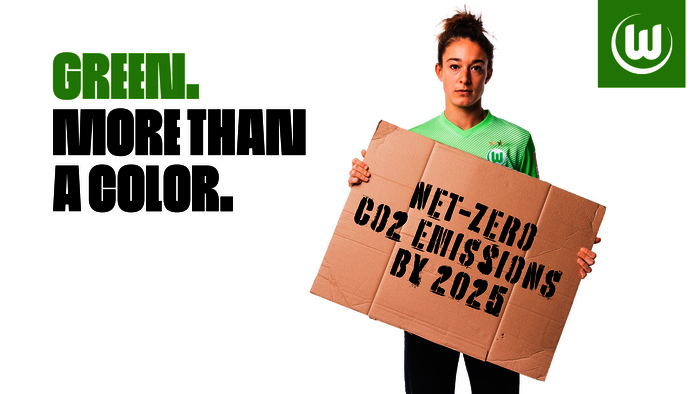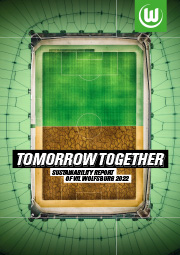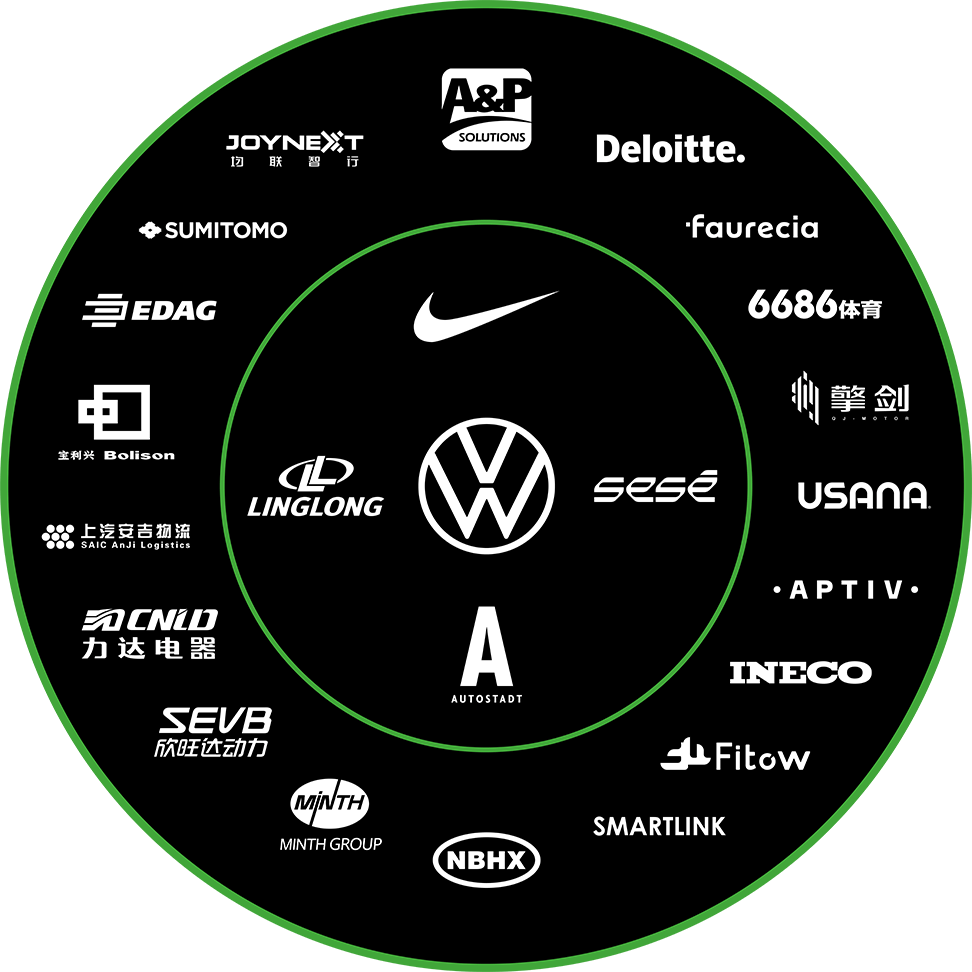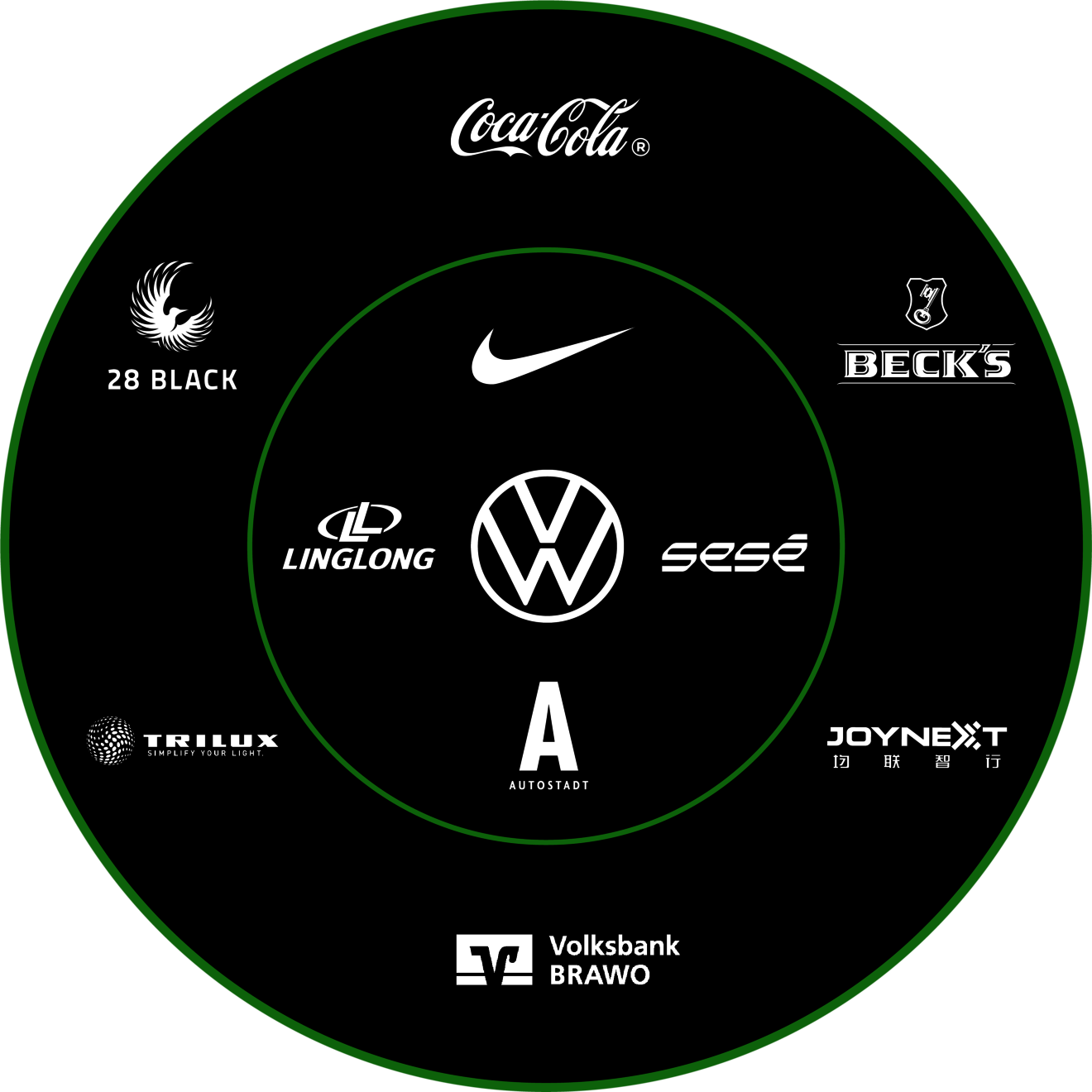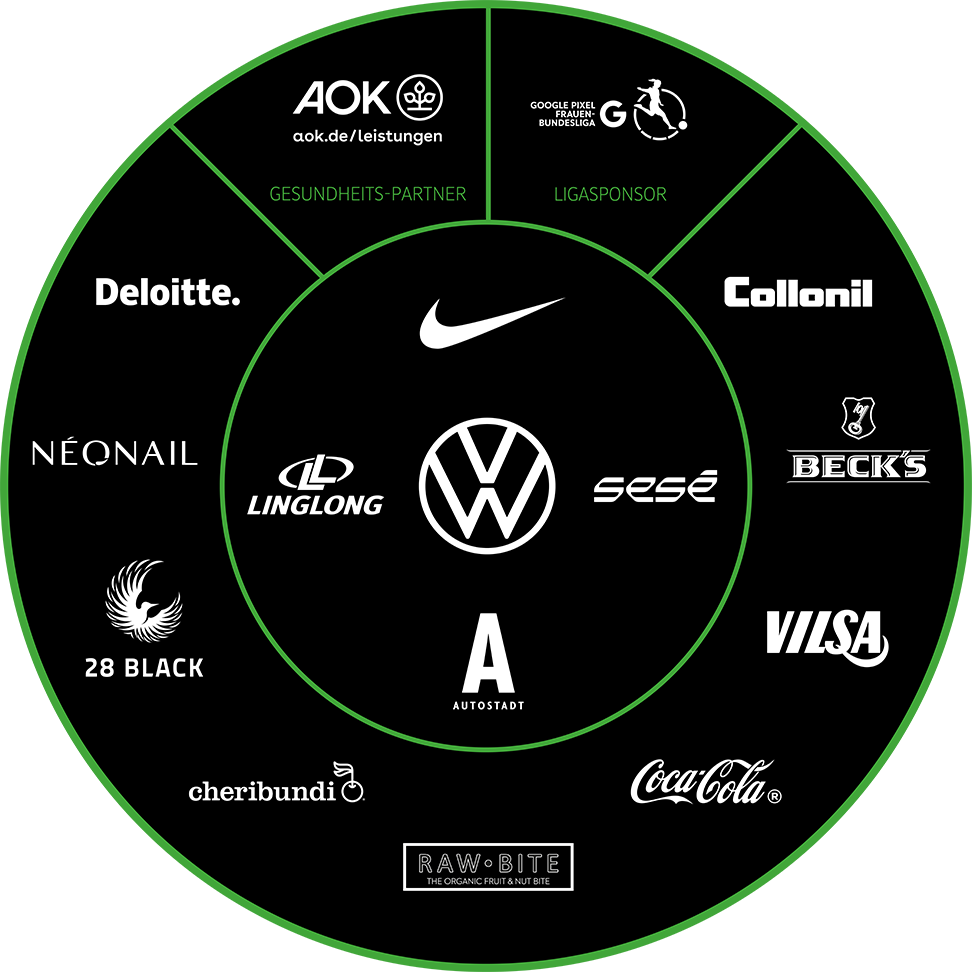- Home
- /
- VfL
- /
- Corporate responsibility
- /
- Environment
- /
- climate protection
Climate protection
CO2-NEUTRAL FOOTBALL MADE IN WOLFSBURG
Delay was yesterday. The final straw was the special report issued bythe World Climate Council in 2018 which highlighted the urgency ofthe situation: businesses, politics and civil society must act now, andtogether, to ideally limit global warming to 1.5 degrees. VfL has alreadyshown the way. By signing the “Sports for Climate Action” and climateprotection agreement as "race to zero"-partner of the United Nations, VfL is the first Europeanfootball club in top leagues to publicly commit to the systematicreduction of its CO2 emissions (see page 54).By becoming a signatory, the club pledges to make verifiable steps toachieve climate-neutral football.
Managing director Michael Meeskeexplains what this means: “We need more than just a memorandum of understanding. We want tobring alive climate protection at the club authentically and honestly, andestablish benchmarks for the whole league. This is important becausewe can only achieve the transition to CO2-neutral football if we worktogether. To do this, we need a clear and fair target, against which the contribution of the club and the sector as a whole can be measured.”
-
Objectives
Net zero – that is the overriding target of the VfL climate strategy. This means that all of the greenhouse gases attributable to VfL need to be either removed from the atmosphere, or avoided at another location. The aim is to achieve this within five years, and therefore make VfL Wolfsburg climate-neutral. The football club pursues a double strategy here: reduction plus compensation.
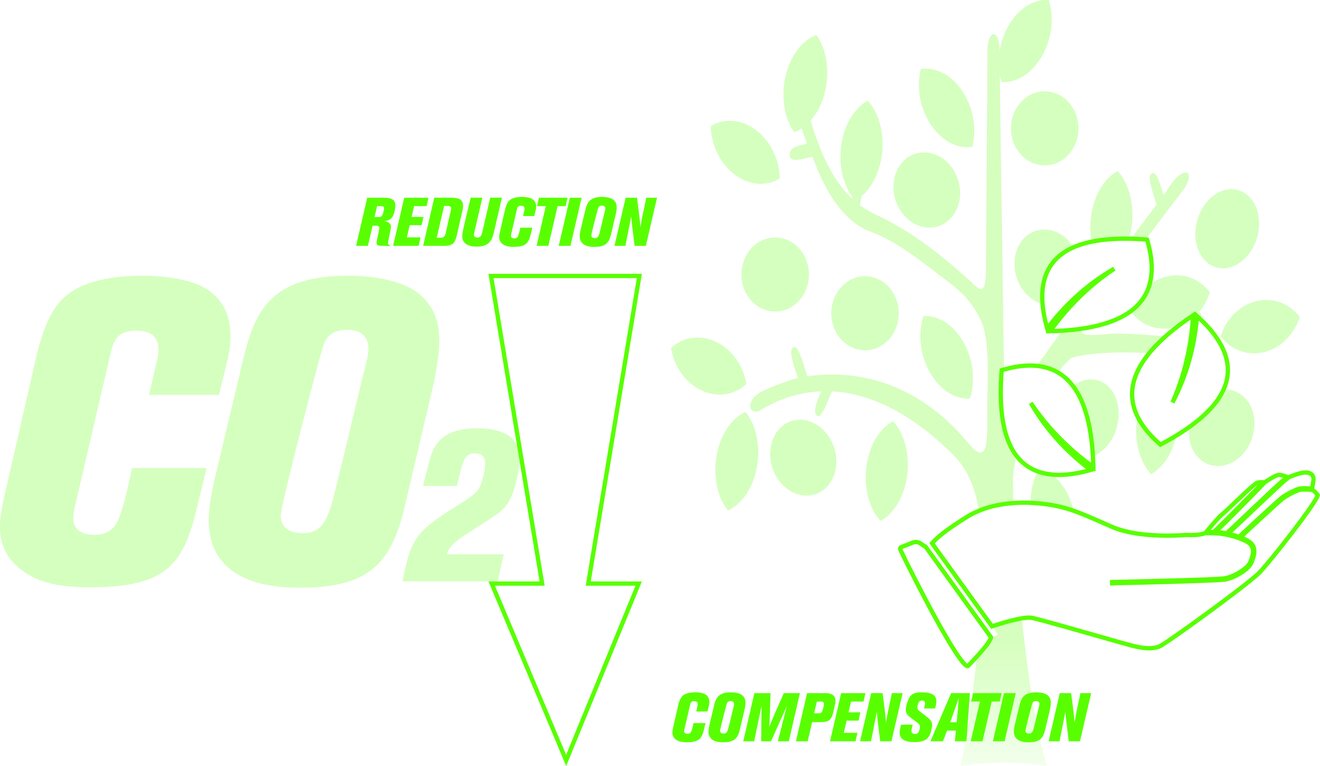
In 2020, VfL Wolfsburg worked together with external experts to completely revise its climate targets, and develop a reduction roadmap for CO2 emissions based on scientifically-based targets. The reduction roadmap is based on the methods issued by the Science Based Targets Initiative, and defines a set of concrete steps to be implemented to dramatically decrease the greenhouse gases emitted by the club. VfL wishes to comply with the stipulations of the 2015 Paris Climate Agreement, and therefore help restrict global warming to 1.5 degrees. Specifically, VfL plans to reduce its emissions to net-zero by 2025. Net-zero means: reducing or using compensation measures for all of the greenhouse gas emissions generated directly or indirectly by VfL, and to thus achieve a net-zero climate balance. To reach this target, VfL Wolfsburg will reduce its total emissions (scope 1 to scope 3) by 6.45 per cent annually. This equates to a reduction of 55.07 per cent by 2030 compared to the 2017/2018 reference year.
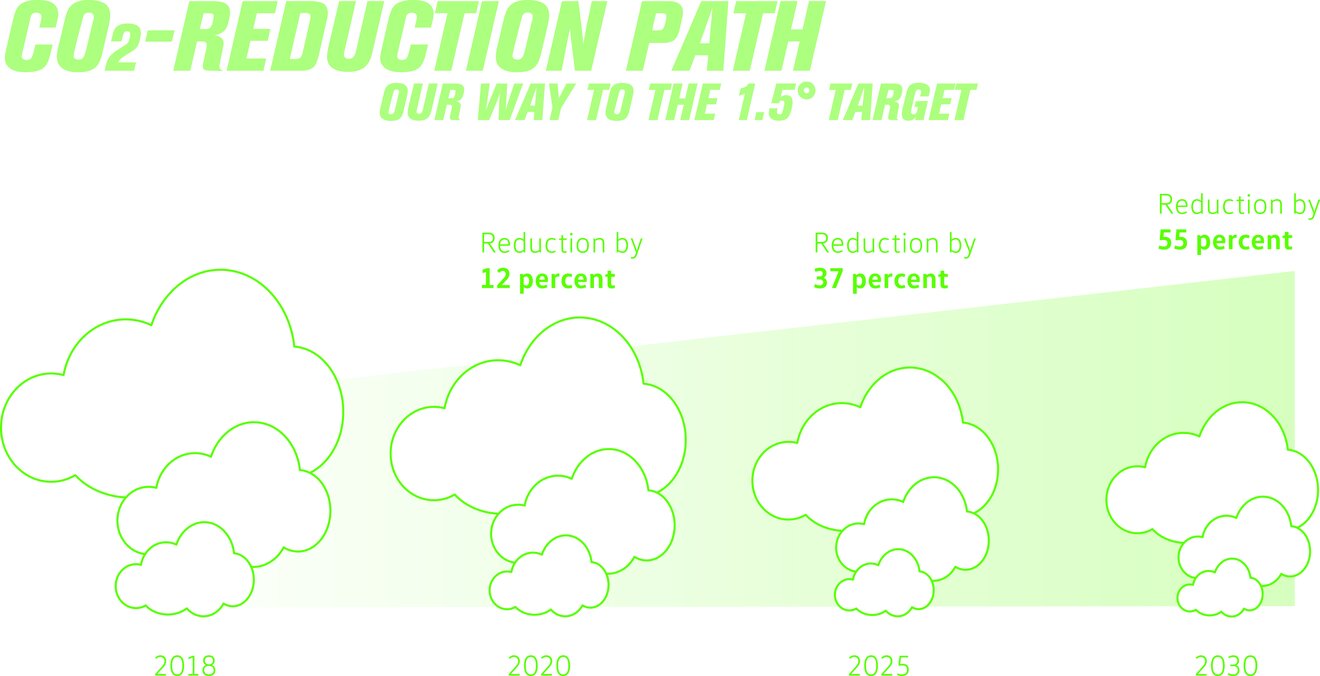
-
UN-Initiative Race to Zero
By signing the “Sports for Climate Action” climate protection agreement and as "race to zero"-partner of the United Nations, VfL Wolfsburg again highlights the pioneering role it plays in environmental and climate protection. This agreement contains a clear commitment to the systematic reduction of the CO2-emissions of its sports operations, as well as raising the awareness of its target groups. Top professional football in particular, as a source of inspiration for dedication and involvement, plays an important part in the development of society, and therefore bears a special level of responsibility. The joint commitment to “Sports for Climate Action” is therefore also an important signal for the re-orientation of the sport at an international level.
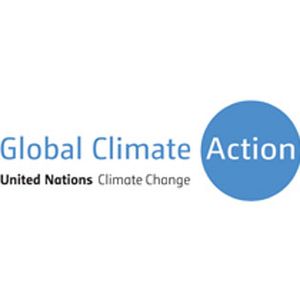
“FOOTBALL HAS ENORMOUS POWER TO INSPIRE THE WHOLE OF SOCIETY”
Interview with Lindita Xhaferi-Salihu, head of “Sports for Climate Action” at the United Nations.
What responsibilities do you ascribe to football associations in terms of climate protection?
Xhaferi-Salihu: Football is such a beautiful game and close to heart for so many of us. Very few things in the world have such a big, global and socially diverse community as those playing and watching football. As such, it has a remarkable potential to drive change by addressing its climate impact and advocating for climate action towards athletes and fans. Professional associations will have a larger footprint, more resources and are in a better position to lead the way for a sustainable way of running football. They can pass on lessons learned to the upcoming generation and empower them with tools and knowledge for the football of the future. First, there needs to be a genuine commitment that the organisation will take a serious and a holistic approach to addressing its climate impact. That it will carefully plan how they build, run and maintain stadiums and focus on areas such as energy, water, transport, food, services & products and waste to identify ways to be increasingly more efficient and sustainable.
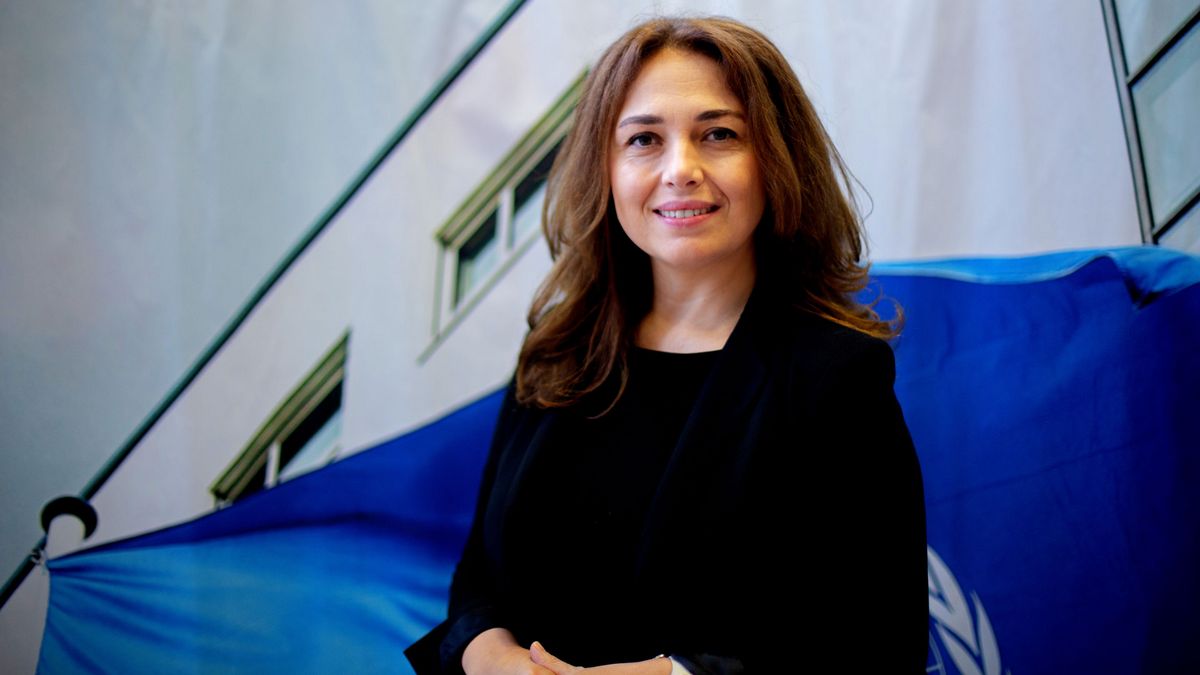
The main target groups of football associations are fans and spectators. Their travel activity is the cause of a large part of CO2 emissions attributed to it. How can spectators be persuaded to change their mobility behaviour? How can VfL Wolfsburg contribute to this?
Xhaferi-Salihu: Transport is a crucial element in the fight against climate change. Sports can be catalysis of change for this sector by increasing the demand for low carbon transport, by encouraging spectators to take low-emission travel choices such as bikes, electric vehicles or use of public transport. For example, Kombiticket is an interesting offer in this regard but for international events there is also a lot of value in exploring longer term strategies such as how to reduce long-distance air travel and incentivize more of local and regional spectators. VfL Wolfsburg could for example consider campaigns to educate spectators in using sustainable transport but also connect with key stakeholders involved in football to work collectively and introduce approaches on both local and national level so that low carbon transport becomes a norm and all football clubs take a consistent and universal approach for travel to matches. Finally, after reduction measures, one can compensate unavoidable emissions generated by travel through credible offsetting schemes.Where do you see football in ten years? Can there be climate neutral match days?
Xhaferi-Salihu: Unfortunately, never has there been a greater disconnect between the need for action and reality. Football can lead the way, create a legacy and empower everyone to demand more from governments and others. In ten years, if we are to keep the planet safe, I hope football will be mature in delivering climate neutral matches and Cups and working with sponsors and service providers who have also committed to transforming to net zero. In fact, I see spectators helping their favorite teams and clubs succeed in their climate neutral journey. The phrase “you can change the world” has been around for many generations, but never has there been a generation that can make it come true like this one. For me and for many others, football can change the world.
-
Footprint: progress in climate protection
VfL Wolfsburg has measured its greenhouse gas emissions every two years for the last ten years, and has set itself ambitious targets for reducing these emissions, as well as continually further developing these measures. VfL Wolfsburg-Fußball GmbH has the CO2 footprint of its activities analysed every two years to measure the progress it is making, and to control the measures it implements.
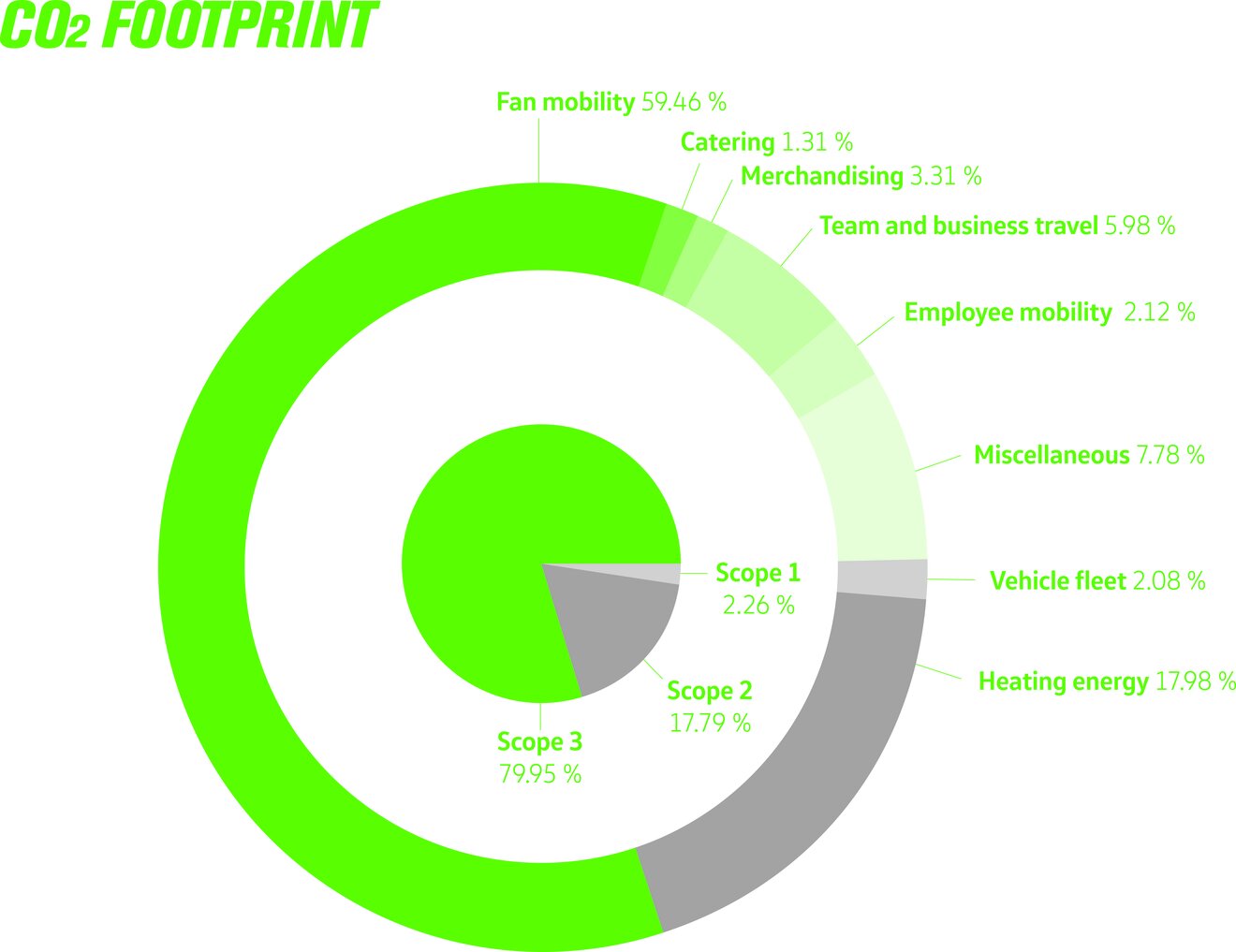
The total amount of greenhouse gases emitted in the 2019/2020 season (scope 1, 2 and 3) was 9,460,915 tonnes CO2e. This is almost 10 per cent (9.98 %) less than during the 2017/2018 season. This is primarily attributable to the strong decline in emissions which can be directly or indirectly (by the purchase of energy) influenced by VfL Wolfsburg (scope 1 and 2). These declined by 24.5 per cent compared to the 2017/2018 season. This development is largely attributable to the significantly reduced consumption of district heating: for instance, the pitch heating had to be used much less frequently because of the mild weather. Compared to the 2011 reference year, the scope 1 and scope 2 emissions were even reduced by almost 47 per cent (46.86 %). VfL had set itself the target of reducing the CO2 emissions by 25 per cent by the end of the 2017/2018 season compared to the 2011 calendar year. This ambitious target was reached in the 2019/2020 season.
However, the emissions in the scope 1 and 2 categories only account for around 20 per cent of VfL Wolfsburg’s total emissions. The other 79.95 per cent are in the scope 3 category. The largest proportion of the scope 3 emissions in the 2019/2020 season was attributable to spectator mobility at home matches. VfL had an analysis carried out on the associated emissions on the basis of the latest survey results and the corresponding traffic statistics. The Corona pandemic prevented a fan survey of their mobility behaviour being carried out. The calculations revealed that there was a slight decline of 0.76 percentage points to 40.23 per cent compared to the previous season. Two key influences need to be taken into consideration in this regard: on the one hand, the VfL men’s team again took part in the Europa League in the 2019/2020 season, which always gives rise to additional CO2 emissions because of the increase in the fan and team mobility. On the other hand, the Corona pandemic meant that the games have been played without spectators since March 2020. Both effects basically neutralised themselves.
-
Measures
One of the important pillars in the climate strategy is avoiding greenhouse gas emissions in the first place. For VfL Wolfsburg, this means, on the one hand, procuring renewable energy: the power is already being provided 100 per cent by renewable sources since 2011. The regional “Moving Together” partner LSW Energie also offers to supply its fans with VfL green power. On the other hand, generating the power ourselves also plays a role: to this end, a photovoltaic and a solar thermal system were installed on the roof of the new VfL-Football.Academy buildings which were built in 2018, which were constructed according to the sustainable building concept to supply the building with power and warm water.
The club’s greenhouse gas emissions will be significantly reduced in the coming years as a result of a series of concrete steps. For example, at VfL Wolfsburg the e-charging infrastructure will be expanded and both professional players and employees will increasingly use company cars from Volkswagen’s fully electric ID. family in the future. In this way, VfL will contribute to climate-friendly forms of transport. Another driving force behind the energy transition is self-produced solar power. In the coming year, the Wolves will expand their photovoltaic system in order to generate even more green and affordable electricity from sunlight. Another measure to reduce CO2 emissions will be the conversion to more climate-friendly natural gas.
An analysis of the club’s emissions footprint shows that the area of transportation remains the largest variable overall. Sporting success increases travel activity. For VfL, this not only means transport for teams and club employees, but also for fans and media representatives. However, the club cannot directly influence their CO2 emissions. Instead, it can provide incentives for climate-conscious (travel) practices. In future, and by implementing a holistic approach, VfL and the club’s partners want to inspire their communities even more keenly with a view to the transportation of tomorrow, because the stated objectives can only be achieved together. Fans can already purchase a climate-neutral ticket and offset their CO2 emissions from fan merchandise. For example, in cooperation with the Hamburg-based startup Yook, VfL publishes detailed CO2 information in the Wölfeshop merchandise and ticket sales to raise awareness of climate protection. This integration of CO2 information in the online store is intended to enable more sustainable consumption. Yook's carbon footprint software is linked to the VfL online store via a digital interface and always provides up-to-date figures on the carbon footprint of selected products and travel to the respective venues.
![[Translate to EN:] [Translate to EN:] [Translate to EN:]](https://static-typo3.vfl-wolfsburg.de/Partner/Logos/VW-Dark.svg)

![[Translate to EN:] [Translate to EN:] [Translate to EN:]](https://static-typo3.vfl-wolfsburg.de/Partner/Logos/LingLong-Dark.svg)

